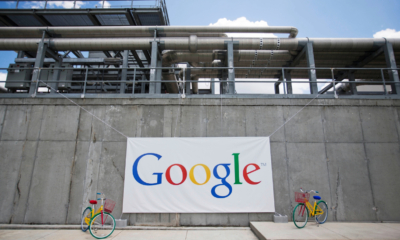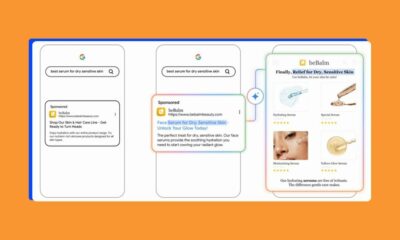MARKETING
What Is Blockchain Marketing and How to Use It?

Blockchain technologies have disrupted multiple industries – retail, real estate, and media just to name a few and transformed the marketing landscape, big time. To get ahead of the game, some of the major-league companies such as Apple, Microsoft, and IBM have already started implementing blockchain marketing strategies. Today, we’ll be digging deeper into this topic to puzzle out the concept of blockchain in marketing and advertising for you and explain it all through several use cases.
Blockchain Marketing Explained
The financial and banking industries are no longer the only ones leveraging the power of blockchain technologies. Now, IT, telecommunication, media and marketing industries are finding ways to implement different blockchain strategies into their existing strategies to boost efficiency, juggle marketing tasks, create better advertisements, and secure better relationships with customers.
According to tradecrypto.com, blockchain marketing is, in a nutshell, a game-changer element that brings together brands/businesses and their (potential) customers since it singles out middlemen and intermediaries (typical for centralized financial systems) which increases transparency, security and privacy, builds trust (all of which explain decentralization best), and reduces advertising frauds. The absolute best DeFi platforms could be good example of principles of decentralization and their reach has has been rapidly growing in the past few years for the above mentioned reasons.
What Is the Blockchain?
Blockchain is a decentralized public ledger that uses P2P (peer-to-peer) network for storing data across multiple nodes or, simply said, locations. New data exchanges are getting verified and stored into blocks while each of the blocks contains information such as the cryptographic hash of the preceding blocks, transaction data, and a timestamp.
Each and every transaction has to be first verified by users that are solving complex math problems and, once it does get verified, all nodes on the network get instantly updated. Once new blocks are verified, there is no way to reverse or change them.
What Are Blockchain Marketing Use Cases?
Affiliate and influencer marketing, social commerce, blockchain-based social media platforms – blockchain technologies offer a myriad of opporunities for all types of businesses.
Affiliate marketing is a multi-million dollar industry. Numerous companies and brands have their own affiliate programs or pay big bucks to affiliate networks. Either way, most of them are just wasting money. By using the power of blockchain technologies, companies can simplify payment processes, track pixels, ensure accountability and ward off ad frauds, and, finally, make it possible to eliminate the not so popular minimum payment threshold most affiliate networks use as an excuse for keeping the money for themselves.
Now that we’ve touched upon the ad fraud topic, we’d like to mention that advertisers lose billions of dollars to ad frauds (malicious advertising, domain spoofing, etc). Sometimes, ads are being displayed on suspicious, low-quality and low-traffic websites that bring no result to the advertiser. As already mentioned, blockchain removes third parties (networks, in this case) so advertisers work directly with publishers while ads are displayed to real users, which alltogether increases transparency.
E-commerce businesses can start using blockchain technologies, too – to enable faster transactions, ensure the authenticity of products and prevent scams, and protect customers’ identities.
Risks of Blockchain Marketing
Although the pros of blockchain marketing outweigh the cons, the latter are still worth mentioning. As an example, when a single entity is the owner of the majority of nodes, this entity can still be in a position to control data. On the flip side, implementing blockchain technologies is a time-consuming and expensive process, at least for now.
In this explanation how to crypto for beginners, one can learn pretty much everything they need to know for starters, although implementing the right blockchain marketing practices takes some trial and error and requires continuous testing.
How Did Blockchain Already Change Digital Marketing?
Just imagine being paid to watch ads! Instead of bombarding users, trying to push them towards making a purchase, some companies, such as Brave Rewards actually let consumers opt-in to watch ads and give them bounties – digital tokens or gift cards.
And then, you have several influencer marketing platforms (Patron, indaHash, and Socialmedia.market to name a few) that make it easier for advertisers to find the right people to promote their brands, ensure that these influencers are getting paid, and offer dispute solution services. These are just a few examples of how blockchain is already changing digital marketing.
Frequently Asked Questions
1. Can you run cryptocurrency ads of Facebook?
Well, it depends on what you want to advertise. If you want to run ads for a crypto exchange or a trading/lending/borrowing platform, crypto wallet that offer users to buy, sell, stake, and swap tokens, crypto mining hardware or software, then you’re going to need a permission to run ads on Facebook. On the other hand, crypto tax service companies, crypto-related news, events, and education platforms, and crypto wallets that allow users to just store and not trade or swap their tokens don’t need written permissions and can run Facebook ads.
2. What are some of the places where crypto brands can advertise?
Cryptocurrency brands can display social media and search engine ads on different crypto advertising platforms, such as Bitmedia.io, Coinzilla, and Biggico amongs others.
















You must be logged in to post a comment Login